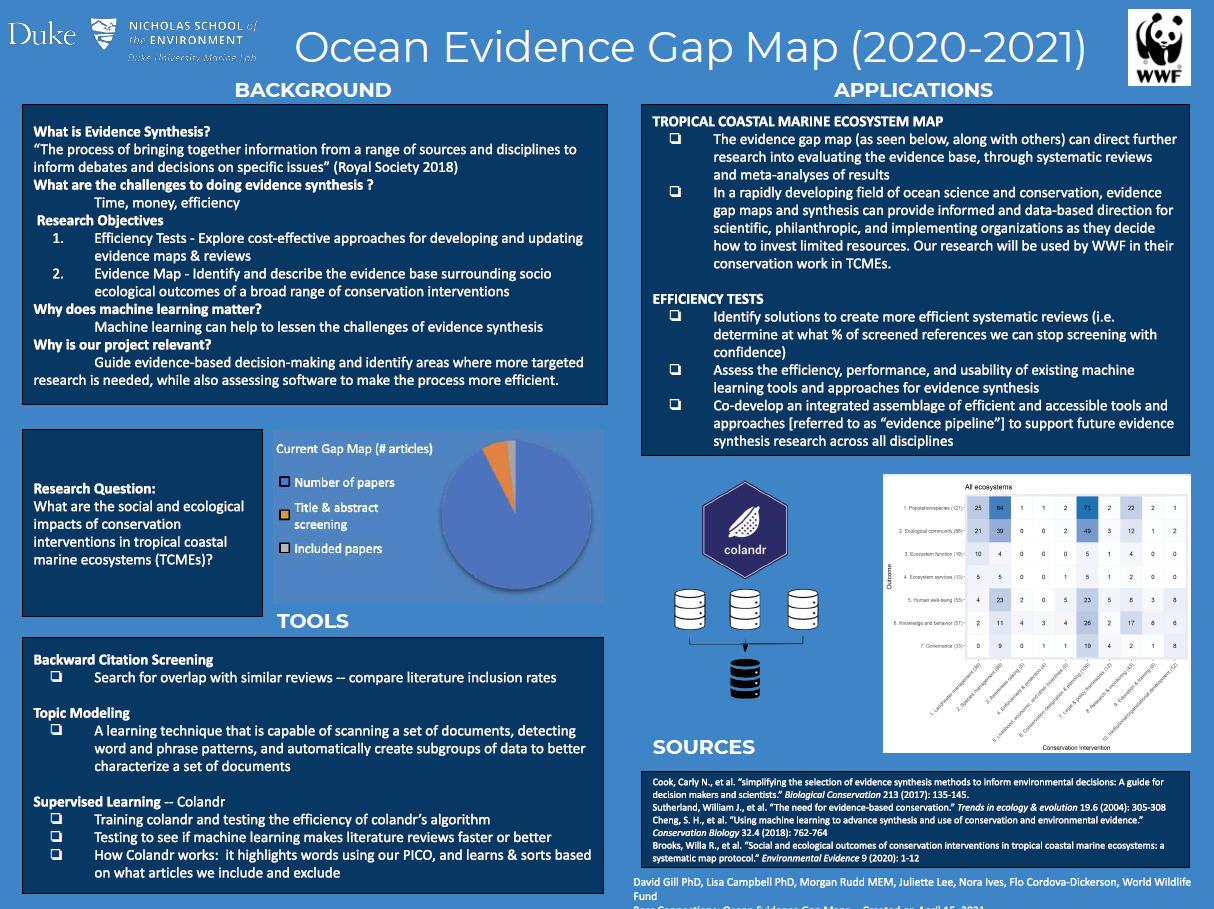Impacts of Conservation Interventions in Marine Ecosystems
Project Team
Evidence gap maps and syntheses are emerging tools within the conservation field. They are useful tools to creatively review existing scientific research in order to help guide evidence-based decision-making and identify areas where more targeted research is needed. Gap maps describe the distribution of studies that suggest linkages between particular interventions and outcomes, highlighting key evidence needs and areas where sufficient evidence could exist.
Our team tested the efficacy of machine learning to aid literature reviews and created tangible results for the World Wildlife Fund (WWF) through an evidence gap map. Through the machine-learning software Colandr, our team conducted in-depth literature reviews on social-ecological outcomes of conservation interventions in tropical coastal coral, seagrass and mangrove ecosystems. WWF commissioned our team to focus on this topic as they are interested in conserving tropical marine habitats by exploring the conservation intervention and their socio-ecological outcomes.
Ocean Evidence Gap Map
Poster by David Gill, Lisa Campbell, Morgan Rudd, Juliette Lee, Nora Ives, Flo Cordova-Dickerson

